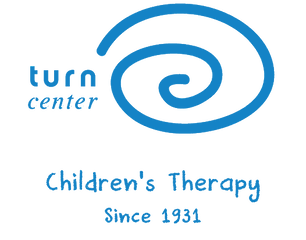Reflex Integration at Turn Center
What are primitive reflexes?
Primitive Reflexes are automatic movements, present at birth, that assist with survival. Primitive Reflexes are not meant to stay forever, and typically “integrate” through everyday movement as children meet developmental milestones, making way for new and more complex/mature movement patterns.
What if they don’t integrate?
If a reflex is “retained” or does not integrate as we expect, it can affect a child’s natural development. Instead of mature movements, a child with retain reflexes will often demonstrate delays or clumsiness. Additionally, when reflexes are retained, we find that children may commonly struggle with social skills, coordination for plays games or sports, emotional regulation, problem solving, focusing, reading, handwriting, and anxiety. Some benefits you may see by participating in therapy to integrate reflexes include improved balance and coordination, enhanced cognitive function, increased focus, and attention
Who Benefits:
· Children ages 4 and up (reflexes are commonly not fully integrated until 3 years old so we recommend waiting until then)
· See attached screening checklist for potential red flags that may qualify your child!
What does it look like?
· If you have concerns, please contact your child’s doctor, and ask for a referral to be evaluated by a Turn Center Physical Therapist!
· We will complete a full of evaluation of your child’s reflexes to determine whether they have integrated appropriately.
· A custom treatment plan will be developed to meet your child’s unique needs
· Family participation and follow through with recommended home activities is necessary to achieve maximal results
Screening questions:
Does your child struggle with any of the following:
· Motion sickness
· Light/sound sensitivity
· Anxiety/nervousness
· Difficulty with ball games (throwing/catching ball)
· Fight/Flight or Freeze Reactions
· Poor Impulse control
· Poor Balance
· Visual-Perceptual Challenges
· Auditory processing
· Decreased organizational skills
· Spatial awareness difficulties
· Fidgeting
· Decreased concentration
· Bed Wetting beyond 5 years of age
· Reading difficulties
· Sensory concerns or aversions
· “Ants in the Pants”
· Poor Handwriting
· Difficulty crossing midline
· Right/Left confusion
· Frequently mixes b’s and ‘s during writing
· Clumsy gross motor skills
· Messy eater
· Decreased Attention
· Difficulty copying from the board during school
· Picky eating
· Fatigues easily
· Frequently over re-acts to situations
· Hypomobility “floppy”
